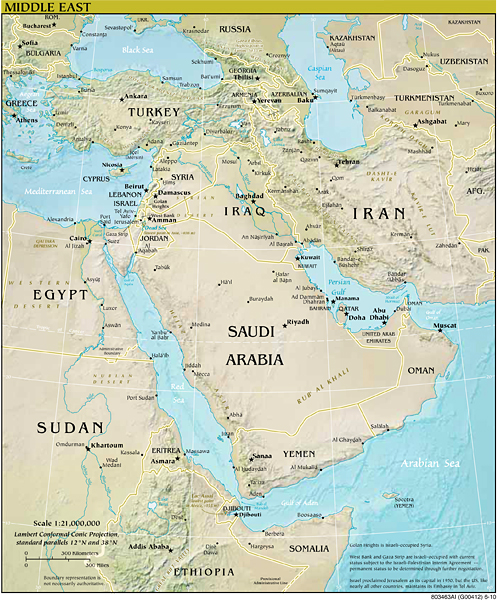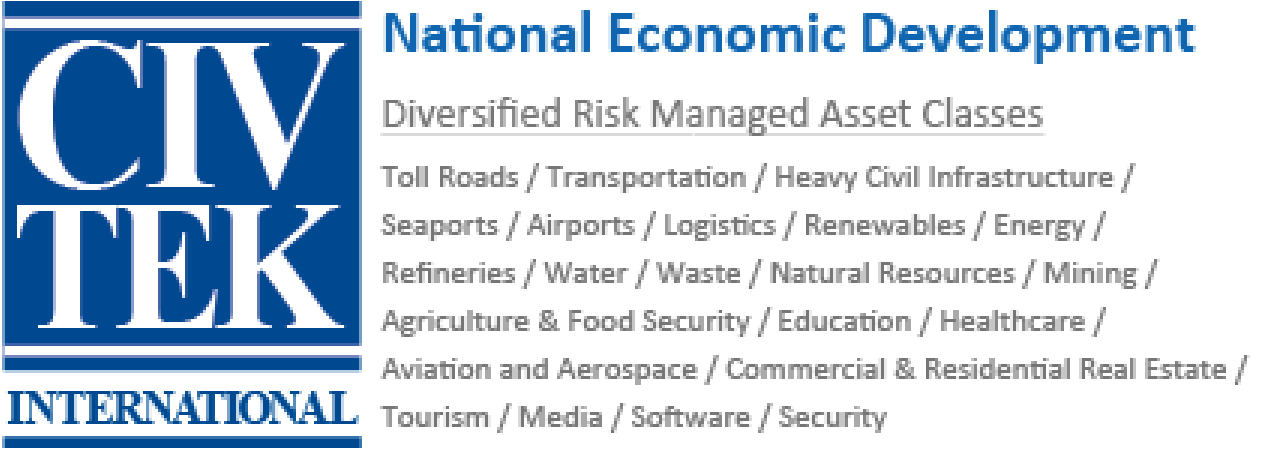Tel: 00.1.916.869.4097 | Mail: contact@civtek.com
Middle East

Saudi Arabia's oil-based economy has strong government controls. It possesses about 20% of the world's proven petroleum reserves, ranks as the largest exporter of petroleum, and plays a leading role in OPEC. The petroleum sector accounts for roughly 80% of budget revenues, 45% of GDP, and 90% of export earnings. Saudi Arabia encourages the growth of the private sector in order to diversify its economy and to employ more Saudi citizens.
Diversification efforts are focusing on power generation, telecommunications, natural gas exploration, and petrochemical sectors. Almost 6 million foreign workers play a role in the Saudi economy, particularly in the oil and service sectors, while Riyadh is struggling to reduce unemployment among its own nationals. Saudi officials are particularly focused on employing its large youth population, which generally lacks the education and technical skills the private sector needs. Riyadh has substantially boosted spending on job training and education, most recently with the opening of the King Abdallah University of Science and Technology - Saudi Arabia's first co-educational university. As part of its effort to attract foreign investment, Saudi Arabia acceded to the WTO in December 2005 after many years of negotiations. The government has begun establishing six "economic cities" in different regions of the country to promote foreign investment and plans to spend $373 billion between 2010 and 2014 on social development and infrastructure projects to advance Saudi Arabia's economic development.
Turkey's economy is increasingly driven by its industry and service sectors. Its traditional agriculture sector still accounts for about 30% of employment. An aggressive privatization program has reduced state involvement in basic industry, banking, transport, and communication, and an emerging cadre of middle-class entrepreneurs is adding a dynamism to the economy. Turkey's traditional textiles and clothing sectors account for one-third of industrial employment, despite stiff competition in international markets that resulted from the end of the global quota system. Other sectors, especially automotive, construction, and electronics industries, have surpassed textiles within Turkey's export market.
Oil began flowing through the Baku-Tbilisi-Ceyhan pipeline in May 2006. This marked a major milestone that will deliver up to 1 million barrels per day from the Caspian to market. Several gas pipelines also are being planned to move Central Asian gas to Europe via Turkey. This will help address Turkey's dependence on energy imports over the long term.
After Turkey experienced a severe financial crisis in 2001, Ankara adopted financial and fiscal reforms as part of an IMF program. The reforms strengthened Turkey's economic fundamentals. This ushered in an era of strong growth - averaging more than 6% annually until 2009, when global economic conditions and tighter fiscal policy slowed growth to 4.7%, reduced inflation to 6.5% - a 34-year low - and cut the public sector debt-to-GPD ratio below 50%.
Turkey's well-regulated financial markets and banking system weathered the global financial crisis and GDP rebounded strongly to 7.3% in 2010, as exports returned to normal levels following the recession. The economy, however, continues to be burdened by a high current account deficit and remains dependent on often volatile, short-term investment to finance its trade deficit. The stock value of FDI stood at $174 billion at year-end 2010, but inflows have slowed considerably in light of continuing economic turmoil in Europe, the source of much of Turkey's FDI. Further economic and judicial reforms and prospective EU membership are expected to boost Turkey's attractiveness to foreign investors. However, Turkey's relatively high current account deficit, uncertainty related to policy-making, and fiscal imbalances leave the economy vulnerable to destabilizing shifts in investor confidence.
CivTek presented a "National Earthquake Safety Plan" to the Prime Minister's Chief Advisor in November of 2011.
Copyright © 2012 - All Rights Reserved - CivTek International | Privacy Policy |
Design by MstrG

